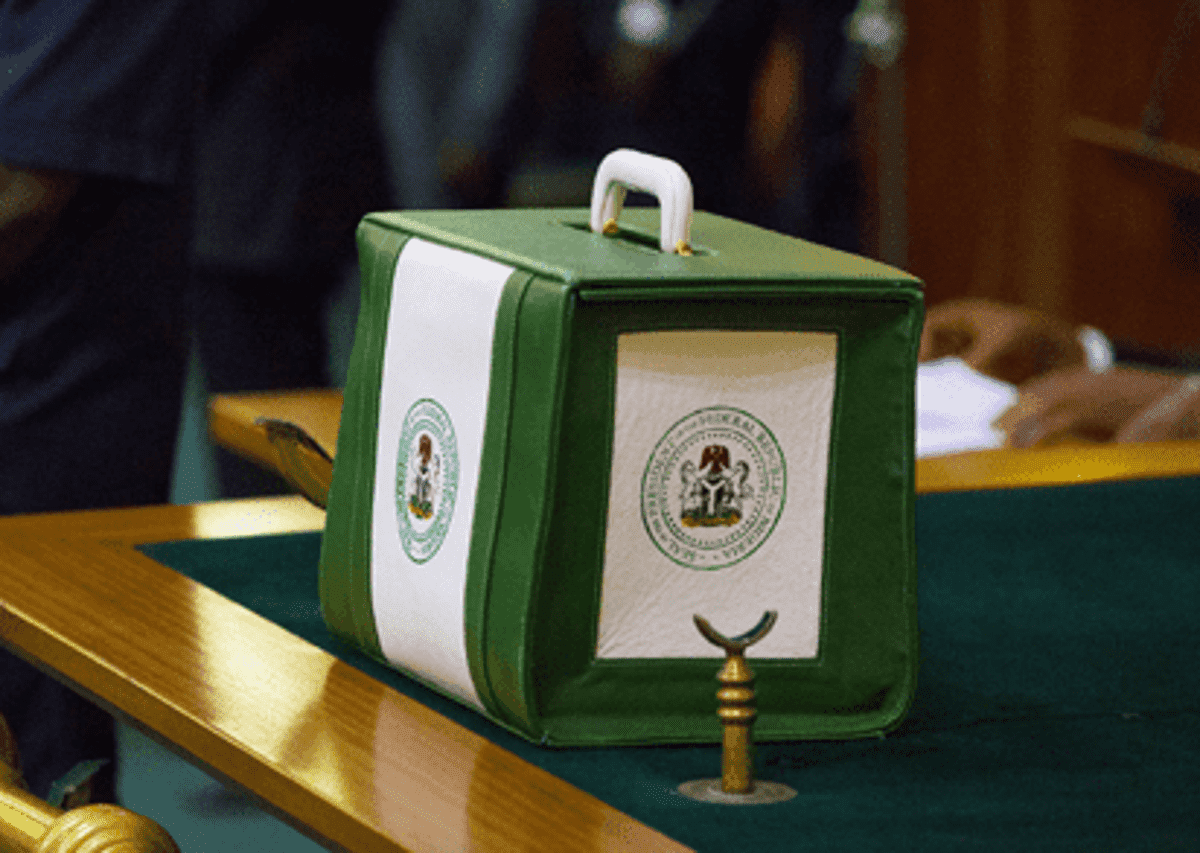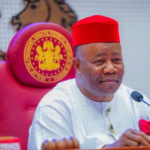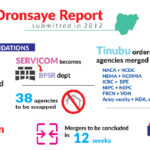There are indications that the implementation of Steve Oronsaye’s Report on the restructuring and rationalization of federal government ministries, departments and agencies (MDAs) may not happen anytime soon despite the recent presentation of the white paper report to that effect as an analysis of the 2023 budget showed that over N206bn was voted for some of the agencies recommended for scrapping.
Daily Trust checks indicated that 39 of the agencies recommended for scrapping had allocations running into billions of naira mainly as personnel costs.
- Police probe death of man found decomposing in room in Lagos
- Why we are engaging presidential candidates — Northern elders
Former President Goodluck Jonathan had, in 2011, set up a committee headed by Mr Steve Oronsaye to rationalise and restructure federal parastatals, commissions and agencies.
The committee submitted its report in 2012, recommending merger, conversion and scrapping of some MDAs.
But the White Paper Committee set up by the administration rejected most of the recommendations contained in the Oronsaye Report.
In November 2021, the government, under President Muhammadu Buhari, inaugurated two committees: one to review the Oronsaye Report and its White Paper, chaired by a retired Head of the Civil Service of the Federation, Alhaji Bukar Goni.
The second committee, chaired by Amal Pepple, also a retired Head of the Civil Service of the Federation, was constituted to review new parastatals, agencies and commissions created between 2012 and 2021.
Upon submission of their reports, the government, in July 2022, set up another committee chaired by Ebele Okeke, a former Head of the Civil Service of the Federation, to produce a white paper on the report.
On August 19, this year, President Muhammadu Buhari said he had directed that the Oronsaye White Paper Report be subjected to immediate review for the government to implement its general recommendations.
Buhari, who said that the review was about to be completed, added that its implementation would bring some fundamental changes to the structure of the civil service.
According to a statement by his Special Adviser on Media and Publicity, Femi Adesina, Buhari said this when he received the Central Working Committee of the Association of Senior Civil Servants of Nigeria at the State House, Abuja.
The statement was titled ‘Oronsaye Report Will Lead to Fundamental Changes in Our Civil Service, President Buhari assures.’
Buhari had said, “I am aware that the review is about to be completed. While some may complain about the length of time it has taken thus far, the outcome of the various review teams would lead to some fundamental changes in the structure of our Civil Service and as such, it must be subjected to rigorous review and scrutiny before presentation and implementation.”
The president said that the Secretary to the Government of the Federation, Boss Mustapha, would submit the harmonized white paper once it is concluded.
The president said his government remained focused on strengthening the service and ensuring it helped the government fulfil its objectives.
New budgetary provisions for contentious agencies
There are indications that the implementation of the white paper may not happen any time soon as most of the agencies recommended for scrapping still have allocations in the 2023 budget.
For instance, the National Salaries and Wages Commission was recommended to be merged with the Revenue Mobilisation, Allocation and Fiscal Commission (RMAFC). The commission has N988m in the 2023 budget.
The Infrastructure Concession and Regulatory Commission (ICRC), recommended to be domiciled in the Bureau of Public Enterprises (BPE), has N1.4bn in the budget.
The Economic and Financial Crimes Commission (EFCC), the Independent Corrupt Practices Commission (ICPC) and the Code of Conduct Bureau were recommended to be merged into a single body. In the budget, they were allocated N43.2bn, N13.7 and N2.6bn respectively.
The Fiscal Responsibility Commission (FRC) has N827.3m; the Federal Character Commission (FCC), N3.7bn comprising N3.1bn as personnel cost; the National Inland Waterways Authority (NIWA), N5.3bn; the National Orientation Agency (NOA) will spend N8.4bn with N7.9bn of the sum as personnel cost; the National Institute for Cultural Orientation (NICO) has N2.3bn out of which N2.1bn is for personnel cost.
The Nigerian Institute for Hospitality and Tourism Studies (NIHOTOUR), the National Troupe and the National Theatre, National Gallery of Arts were allocated N2.2bn, N756.2m and N3bn respectively.
The Nigeria Institute of Leather and Science Technology has N3.5bn; the National Research Institute for Chemical Technology (NARICT), N1.9bn; the National Biotechnology Development Agency (NABDA), N10.2bn; the Nigerian Building and Road Research Institute (NBRRI), N8.5bn; the National Agency for Science and Engineering Infrastructure (NASENI), N47.6bn; the National Centre for Agricultural Mechanisation (NCAM), N1.1bn; the National Rural Electrification Agency (NREA), N44.4bn and the National Power Training Institute of Nigeria (NAPTIN), N1.3bn.
Other agencies are the Directorate of Technical Cooperation in Africa (DTCA) allocated N606.7m; the Institute for Peace and Conflict Resolution (IPCR), N934.1m; the National Oil Spill Detection and Response Agency (NOSDRA), N3.3bn; the National Metallurgical Development Centre Jos, N916.7m; the National Metallurgical Training Institute Onitsha, N637.1m; the Nigerian Institute of Mining and Geosciences (NIMG) Jos, N589.9m and the Nigerian Geological Survey Agency, N3bn.
Others are the National Steel Raw Materials Exploration Agency (NSRMEA), N1.1bn; the National Productivity Centre, N1.7bn; the Nigerian Copyright Commission, N1.5bn; the National Agency for the Control of HIV/AIDS, N7.9bn; the National Directorate of Employment (NDE), N7.6bn; the Small and Medium Enterprises Development Agency of Nigeria (SMEDAN), N5.8bn; the Border Communities Development Agency (BCDA), N2bn.
The three federal government broadcast stations – the Nigerian Television Authority (NTA), the Federal Radio Corporation of Nigeria (FRCN) and the Voice of Nigeria (VON), recommended to be merged into a body called Federal Broadcasting Corporation of Nigeria, were allocated N8.3bn, 11.7bn and N3.2bn respectively.
A former Head of Service of the Federation, Bukar Goni Aji, told Daily Trust that the government had shown the will to implement the reports in order to reduce the cost of governance.
He said “This administration set up two committees to review the White Paper and the Oronsaye’s report itself. The two committees have reviewed the Oronsaye Report and the White Paper and the report have been submitted to the government. Right now, the government is putting those reports together to proceed to the Federal Executive Council for approval.
“After the approval, the actual implementation will start. The reason for the review is that there were some agencies that were recommended to be scrapped. Some have already been done. Along the line, there were new agencies that came on board as a result of laws passed by the National Assembly. Those were the two issues reviewed by the two committees under the chairmanship of the Secretary to the Government of the Federation.
“It is when the final approval comes that we will know which agencies are going, the ones to be merged, those whose budgets will be reduced or stopped. The government will implement the recommendations because the main aim is to cut the cost of governance. Certainly, there are some of the agencies that have outlived their period, some were established after independence.”
He allayed fears of civil servants being sacked as a result of the implementation, saying those that would be affected are the directors and senior management staff.
“Mostly, the government does give a human face to whatever decision they take. It happened when Obasanjo came. Agencies were merged to reduce the cost of governance at the top level of those agencies but the personnel and the staff were absorbed and posted to various agencies and ministries so that the government does not directly encourage job loss except when it becomes absolutely necessary.
“The top level is where most of these agencies are affected, i.e directors, DGs but at the lower level of personnel, honestly their salary is nothing to write home about and the government must avoid telling people to go home unless it becomes absolutely necessary,” he said.
With less than a year to the end of the Buhari administration, coupled with the commencement of campaigns by political parties, observers believe that scrapping some of the agencies envisioned in the Oronsaye Report may not happen during the present administration.
“It is very unlikely to happen because this is an election coming,” a source at the federal secretariat in Abuja said.
“Scraping the agencies now would make the APC government unpopular and you know that they want to retain power…I have a feeling the president wouldn’t mind doing it at all cost but there are powerful people who would not want it to happen until after the elections,” he said.

 Join Daily Trust WhatsApp Community For Quick Access To News and Happenings Around You.
Join Daily Trust WhatsApp Community For Quick Access To News and Happenings Around You.


